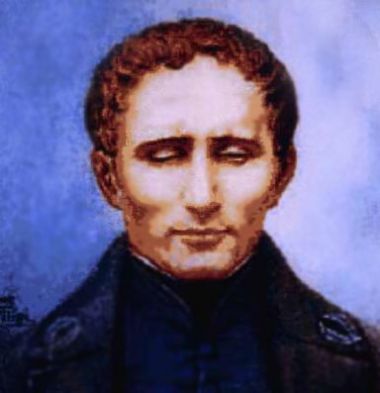'Blind but now I see': The Christian legacy of Louis Braille
Today is World Braille Day, the commemoration of the birth of Louis Braille, a prodigious blind boy who grew up to innovate a form of communication that transformed the world for those unable to see. Braille was also a committed Christian who knew on multiple levels the power of granting sight to the blind.
Born January 4, 1809, in Coupvray, France, there were early fears for the ill health of the newborn Louis – and his devout parents had him baptised immediately. He escaped tragedy then, but only momentarily. At age three, while playing with tools in his father's workshop, he was trying to make a hole in a piece of leather with a sharp knife – but the blade slipped and struck one of his eyes. The damage could not be undone and the infected wound soon spread to his second eye; by age five, Louis was completely blind.
His parents still endeavoured to give Braille as normal life as possible. As Dan Graves explains for Christianity.com, new local priest took note of the boy, taught him and introduced him to Paris's Royal Institution for Blind Youth.

Braille was an incredibly bright pupil, and at the institute he also learned to play the piano, sparking a musical passion that would later lead him to become a talented church organist and cellist. He was taught from his mentor Captain Barbier a form of communication accessible to the blind called 'night writing'. This originally military tool used impressed dots and dashes on paper allowed those lacking sight to 'read' with their fingers.
But the system was overly complex and limited in its scope. At only 15 years old Braille improved on it, innovating the six-dot system that was at first resisted but is now used across the world. The inventor became a renowned professor and musician – he taught at the Royal Institution and from 1834 and 1839 was the organist in Church of Saint-Nicolas-des-Champs and then at the Church of Saint-Vincent-de-Paul.
Despite his fame and success, he never sought glory; stories of his life attest to a supremely talented, generous but also humble man.
Health continued to prove severe a hardship for him and he died of tuberculosis at age 43. On his deathbed his Christian faith proved central and profound. He is reported as saying: 'God was pleased to hold before my eyes the dazzling splendours of eternal hope. After that, doesn't it seem that nothing more could keep me bound to the earth?'
It was not until 1952 that his accomplishments were finally recognised by the French Government and his body was exhumed from the village cemetery in Coupvray and reburied in the Pantheon in Paris, with other French national heroes. In a macabre though well-intentioned twist, the town's mayor insisted on having Braille's hands removed and re-interred in the cemetery.
'I once was lost but now am found, was blind but now I see.' These famous lyrics to the iconic Christian hymn Amazing Grace may seem especially appropriate for the celebration of Braille. He was a Christian who was touched immensely by the power of faith and the light it gave him in a world that was both metaphorically and literally shrouded in darkness. That hope pervaded his life and work, and it was through him that a new kind of 'sight' could be gifted to those who, like Braille, had not the eyes to see.











